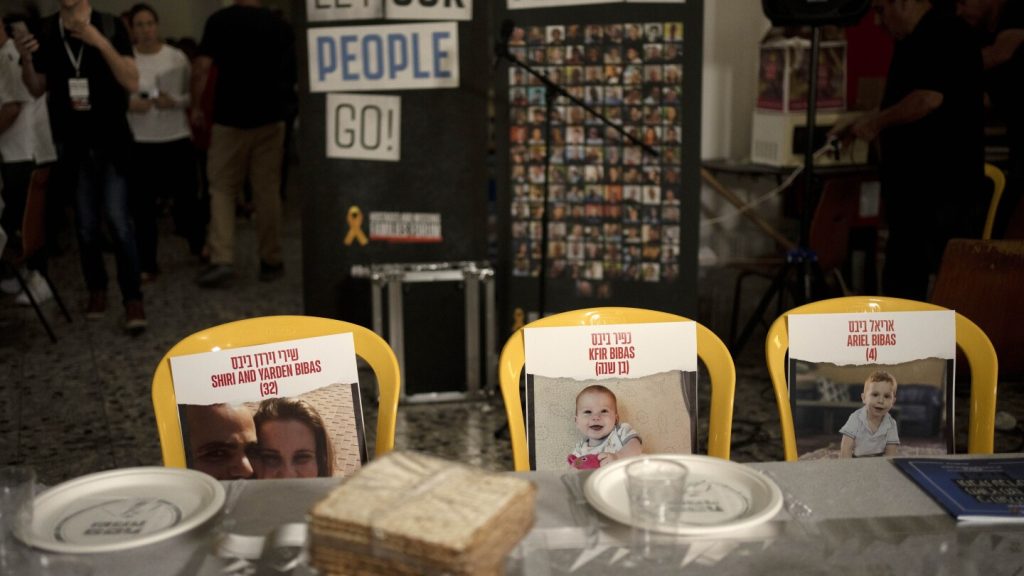Passover, a major Jewish holiday, is set to begin on April 22 this year. It is a time for Jews to commemorate the exodus of ancient Israelites from slavery in Egypt. The holiday is traditionally celebrated for seven days in Israel and eight days by some Jews in the rest of the world. One of the key rituals of Passover is the Seder meal, where families come together to recount the story of the exodus. Observant Jews also avoid eating grains known as chametz during this time, opting instead for unleavened bread called matzo.
However, this year’s Passover celebrations are expected to be somber for many Jews due to the ongoing Israel-Hamas war in Gaza and a rise in antisemitic incidents around the world. Many Seder tables are expected to have empty seats, symbolizing those who have been killed or taken hostage in recent events. Families in the Jewish diaspora are asking rabbis for additional prayers during the Seder, and some have even created a new Haggadah to reflect current realities. There is also concern about the increase in antisemitic incidents, with the U.S.-based Anti-Defamation League reporting a significant rise in assaults, harassment, and vandalism in 2023.
To address safety concerns during the Passover season, the Anti-Defamation League and other Jewish organizations held a “Passover Without Fear” webinar featuring FBI Director Christopher Wray and security experts. The FBI is particularly concerned about the threat posed by “lone actors” and emphasized the need for vigilance without panic. Rabbis and scholars are also reflecting on the current challenges facing the Jewish community. Noam Zion, a member of the faculty of Jewish studies, emphasized the importance of generating hope for the future during this Seder. Rabbi Moshe Hauer, from the Orthodox Union, highlighted that the Seder is a time to confront historical challenges and discuss the realities of being a Jew in the present day.
Despite the challenges facing the Jewish community, Rabbi Noah Farkas of the Jewish Federation of Greater Los Angeles sees the story of Passover as a source of hope and inspiration. He emphasized the importance of the holiday’s message of freedom and joy in a time of cynicism and hopelessness. As Jews around the world prepare for Passover, they are confronted with a mix of emotions and concerns but also a sense of resilience and unity in the face of adversity. The holiday serves as a reminder of the enduring spirit of the Jewish people and the importance of coming together to celebrate freedom and hope.


